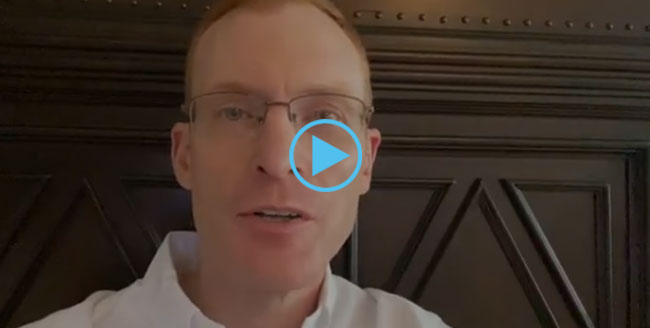A small budget ad account will need to be handled differently than a big budget ad account. What are the differences? We reached out to experts to have them compare handling the two differently budgeted accounts. Keep reading to see what they had to say.

Rebecca Danko
Table of Contents
Small Budget Means Fewer Results
The biggest challenge of handling an ad account with a small budget is the fact that you have to closely monitor ad spend and allocate every cent in the budget towards a specific goal. It’s hard to make great results, especially because small budgets generate fewer results and therefore are longer in the learning phase. There is little room for optimization.
High-budget accounts, on the other hand, let you experiment with your campaigns. You can always set aside a part of the budget for a new, test campaign. They generate more data so you can easily make conclusions and optimize the campaigns. They, however, come with more responsibilities so you have to know how to justify your ad spend for each period.
Collecting Data Takes Longer
Having handled both high-budget and low-budget ad accounts, the main difference between the two is the time it takes to gather data.
To be confident about making an adjustment to an account, a good amount of data must be collected and only one change should be made at a time.
Since low-budget ad accounts take months to collect data, you may be entering into a different sales cycle. Most businesses have a specific time of year that is busier than others, and that can skew the results. You can no longer confidently compare the headings because the sales cycle has changed as well.
Additionally, since only one change should be made at a time, low-budget ad accounts can do much less testing than larger ad accounts. Less testing puts the account at a disadvantage.

Need Google Ads Management Help?
Free Google Ads account review for
qualified clients
Almost 20 years experience

Leanne Arnold

Warner Quiroga
Larger Budgets Require More Monitoring
PPC or Pay Per Click is a Marketing Strategy where an advertiser is charged for every click a visitor does on their ads. Google chooses the winner based on relevance and quality of the content to the keyword search. This strategy increases website traffic and brand awareness to sell the service or product your company offers.
Handling an account can be challenging, especially if you are unaware of either underspending or overspending with your targeted budget. You may have allocated the excess funds to other marketing channels, causing overspending, or you may have lost an opportunity for a possible customer because you have underspent. In this case, accounts with larger budgets should be monitored regularly, while low-budget versions do not need daily monitoring.
One way to monitor the budget is by creating an excel sheet to track budget management. Using this data, you may detect where you are overspending and adjust the allocated budget and determine which campaign you should raise or lower the allocation.
Don’t Get Lost in the Weeds
Managing a low-budget account can be just as challenging as managing a high-budget account. There are challenges at the micro-level (i.e., individual campaigns) and the macro-level (i.e., company decision-making). It is essential to rise to these challenges because every dollar spent can generate positive returns for your business.
Many of the most common mistakes in low-budget accounts are due to the lack of experience or expertise in account management. From a pipeline management standpoint, many people don’t know how to run an efficient sales process. Without proper asset creation, media planning and buying, and tracking and reporting at each stage, it’s easy to get lost in managing the minutia of this task rather than focusing on driving growth.

Lynda Fairly

David Vibert
David Vibert, Founder of David.Market.
Narrower Keywords and Platforms
For PPC accounts with lower budgets, PPC specialists need to focus on doing a few core things well. This includes not spreading a client’s resources too thin, really narrowing down their selection of platforms and keywords and targeting to some core pillars.
With higher budget accounts, you can use the additional budget to diversify your ad approach, but it’s important to keep a close eye on all those efforts to keep them all working together and to avoid wasteful spending.
Optimization Challenges Arise from Budget Constraints
The biggest obstacle a PPC specialist faces when starting with a low-budget ad account is getting through the discovery period. For new accounts with no or limited data, you have to spend money to test and see what works. Initially, you cast a wide net and as the data rolls in you make optimizations and refinements, narrowing in on what gives you the best return.
With a limited budget, this discovery period can take much longer, so it will also take longer to see results. If your budget is too small, you may not cast a wide enough net initially, opting to save money, yet missing potential opportunities. Once you optimize your campaigns you often want to bump up the budgets on your best performers, but if you are limited by budget, you may not have the money to increase the budgets of your best campaigns to their optimal levels.
On the other hand, when working with a larger budget you can save a lot of time by quickly testing many different things with a wide net approach. Having the larger budget up-front will allow you to quickly find out what works best and then scale up those ads or campaigns until you start to see diminishing returns.

Patrick Connelly

Harris Rabin
Budget May Affect Keywords
Most advertisers focus on choosing the right conversion keywords to build a winning PPC campaign. But when you have a small budget for your ad spending, you want to get as many clicks as possible within a target spend amount. Begin by choosing upper funnel keywords. These are category keywords that are inexpensive but will introduce customers in the early consideration stage to your brand and product.
It’s then crucial to organize and structure those keywords. A tiered system for each ad account will break down each campaign into separate ad groups and delineate each group’s relevant keywords, text, and landing pages. Outlining your strategies before launching your campaigns will help maximize clicks and your ad spend. This means your modest budget will be working smarter, not harder.
Worth the Budget
Some of the difficulties with keeping a low advertising budget include that they are inaccurate and do not align with the marketing plan. There is also the widespread belief that advertising is unimportant and not worth spending money on. The truth is that you will always require advertising.

Andrew White
This is a crowdsourced article. Contributors are not necessarily affiliated with this website and their statements do not necessarily reflect the opinion of this website, other people, businesses, or other contributors.



















